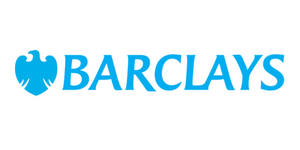MORTGAGE CALCULATOR FOR THE SELF-EMPLOYED
You can use our self-employed mortgage calculator to figure out how much you could borrow. This will be based on the nature of your employment, your income and other factors.
Please note that the mortgage amount provided by the calculator is for illustrative purposes only. The actual amount you’ll be able to borrow can vary from lender to lender. To discuss your mortgage needs in more detail, contact us today.
How will lenders assess my income?
Firstly it’s important to understand that lenders have varying criteria for calculating income. Some are very flexible lenders while others impose a stricter criteria.
However, there are some common factors in how lenders tend to assess self-employed mortgage applications. This will vary depending on the exact nature of your employment. Typical approaches include:
Sole traders – lenders will look at your trading history to assess your level of sustainable income. As evidence lenders will normally ask to see full trading accounts, either prepared by, or certified by, a chartered accountant. Some lenders will ask for your SA302 year-end tax calculations from HMRC, either instead of or in addition to full accounts. It’s common for lenders to ask for up to three years’ accounts, but more specialist lenders may require less.
Partnerships – lenders will usually assess income based on your full trading accounts, like with sole traders. But they also take into account the percentage of your stake in the partnership.
Company directors – many lenders use a similar approach to sole traders/partnerships. They’ll need full trading accounts, or SA302s, to assess the income based on your drawn salary. Some lenders will also consider dividends you have drawn. A less common approach is to calculate an income figure based on your share of company profits. This approach can be advantageous where profits have been retained in the company structure, allowing you to borrow more.
Contractors – like sole traders, lenders will take account of how long you have been a contractor for. They’ll usually want to see your accounts and/or SA302 calculations from HMRC. However, it’s common practice for specialist lenders to calculate income based on the day rate shown on your contract. This is usually based on an assumption you work five days a week, over 48 weeks through the year.
CIS workers – if you work under HMRC’s Construction Industry Scheme (CIS), you may find certain lenders will have different approaches. Many lenders assess these applications on a case-by-case basis. Typically, lenders will ask to see three to six months’ worth of payslips and calculate annual income based on the gross payments shown. They will also consider how long you’ve been working with your contractor, or within your industry.
SELF-EMPLOYED MORTGAGE SPECIALISTS
The mortgage market for self-employed workers isn’t always straightforward. This is due to the fact that many mainstream lenders are more reluctant to lend to self-employed people. If they are willing to lend to self-employed individuals they may have strict lending criteria.
However, more recently the market has seen a shift. There has been an increase in the number of lenders specialising in self-employed mortgages. At IMC Mortgage Brokers we have access to a range of self-employed mortgage products.
Our team have many years of experience in helping people find a mortgage deal that suits their needs. Get in touch with us today to discuss how we can help you.


























